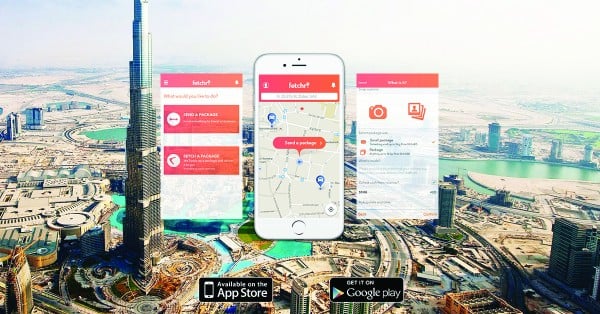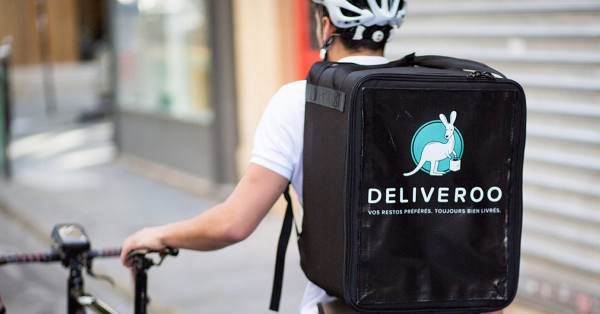Richard Fitzgerald looks at six new tech start-ups that are poised to shake-up the MENA region
There is much talk about the start-up culture in the Middle East. Does the cost of set-up and red tape stifle entrepreneurship? Is there a strong enough support system from mentorship to investment? Do the governments and finance sector do enough to encourage new businesses? Will the region produce a truly global player in the tech scene? When will we see an Arabic Alibaba?
The reality on the ground is that despite the perceived difficulties the start-up scene is strong across the Middle East and there are a few shining lights leading the way. Companies such as Uber competitor Careem, ecommerce platform Souq.com, creative-tech company Brndstr (disclosure – my own employer) and mobile loyalty firm Snappcard all share the distinction of being crafted and developed right here in the Middle East. Not only that, they all have proprietary technology that is interesting to investors from further afield.
So, who is next? What are the hot start-ups of the past 12 months that are set to take the region by storm?
- Teach Me Now (education)
Education is an industry that is ripe for disruption. It is said by the Bureau of Labor Statistics in the US to be worth $1.6 trillion versus $200 billion for the ad market. That is a metric that is larger the world over. One such company making a splash here recently is Teach Me Now. Run by founder Thea Myhrvold, Teach Me Now connects tutors with those eager to learn in an online platform. It is described as ‘Anyone can teach, anyone can learn’. It recently won the Infiniti Speed Pitching for the Middle East, a contest that pitted together 40 other start-ups to pitch in the back of a car, with a total prize of $40,000. If this cash is put to good use, we can expect to see this company grow in the coming months.
- Fetchr (delivery)
Aramex, the region’s leading courier company, was founded in 1982, long before the mobile phone, not to mention the smartphone. A new delivery app, Fetchr, which allows you to send packages via the click of an app, has raised over $11 million and is backed by a US venture capital firm. One of the structural challenges that have helped delivery apps in Dubai over the years is a lack of a clear postal code, address, and post box for many areas. By allowing users to geolocate the pick-up and drop-off points for their packages, Fetchr has provided a solution to this issue, allowing packages to be delivered from one phone to another so to speak.
- Insydo (lifestyle)
Insydo – a company that has brought Steve Jobs back to live on billboards across the UAE (well almost). Insydo is a lifestyle app that lets people know where to go and what to do in Dubai. They – along with Brndstr – are the only two companies from the Middle East that have been selected to present at the Startup Grind event in Silicon Valley later this month, a significant accomplishment.
- Classdive (fitness)
Classdive is an app that essentially let’s you know about fitness workouts on the go. Whether it’s a cross-fit box, a spinning class or yoga session. Staying fit and healthy is big business in Dubai; the multitude of cultures present means that pretty much every sport in the world is played here. Classdive provides a utility for fitness fanatics, keeping them in the loop wherever they are.
- Deliveroo (food)
Following the success of Foodonclick – recently part of the region’s biggest tech acquisition (its parent company Yemeksepti was acquired last year by German company Delivery Hero) – there are a couple of new competitors that have entered the food delivery market. Deliveroo is one such start-up, a mobile application allowing users to order food at the touch of a phone. Originally a London-based start-up, it has expanded to 12 countries and is entering the Middle East via the UAE. There are a whopping 7,000 restaurants in Dubai alone. What better market to test out your product?
- Visage (recruitment)
Finding a job and finding the right talent is a very difficult thing to do in the Middle East. Online sites like Visage and Interns.me are trying their best to improve the process. Visage is like a marketplace for jobs, connecting applicants with employers. Positioned as a solution to the high fees charged by recruitment agencies, Visage describes itself as ‘a global community of ‘Freecruiters’ crowdsourcing talent for your job openings.
In summary, expect to see start-ups affect every walk of live in the next year. From how you get a job, work out, plan your weekend, order your food, send gifts and learn new things. The smartphone continues to be the catalyst to change in business and consumer behaviour. If you have an idea of your own, these guys are showing that it’s possible to be realised in the Middle East.
Richard Fitzgerald is the managing director of Brndstr












